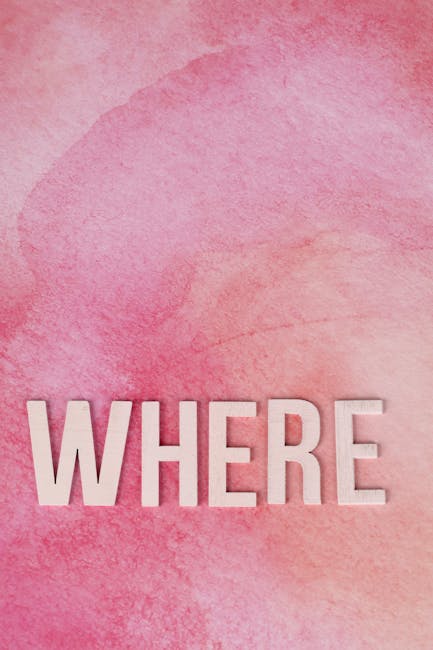In this era full of challenges and uncertainties, everyone seems to bear a heavy burden of stress and confusion. Especially for young people, their lives are vastly different compared to previous generations. From childhood to youth, they are constantly in the waves of change and cultural shock, from the countryside to the city, from domestic to abroad, from studying to working, and then to love, each transition requires adapting to new changes and lifestyles.

Relaxing does not mean giving up on effort, but rather a self-regulation in life. For young people, there are three critical developmental tasks: first is to recognize and understand the external world; second is to explore and comprehend oneself; and third is to perceive and respect the diversity of life. Without undergoing such a process of opening one’s mind, the deep stress and anxiety will always lurk within.
This article will share three books, trying to answer a question of modern society: What kind of mental strength do we need at present? I believe the answer can be summarized into three pillars: first, believe in the courage that the future will be better; second, believe in the power that one’s labor has value; third, believe in the warmth and guidance of humanity.
I. “Gone with the Wind”: Faith under Uncertainty
“Learn to be grateful for uncertainty, for it lets people recognize the most precious connotations of life.”
“The most precious thing is to believe, and the ultimate foothold of belief is oneself.”
“Every person in difficult times must believe in tomorrow.”
First, let’s discuss how to establish faith in an uncertain and unknown environment. “Gone with the Wind”, a novel by Margaret Mitchell, reflects not just a love story, but the growth journey of a woman. The protagonist Scarlett’s three marriages were not out of love, but based on anger, benefits, and money. Yet the reader is still moved because Scarlett exemplifies the Southern plantation owner’s daughter’s tenacity and persistence for life. However, her life was completely changed by the Civil War.
When everything was destroyed by the war, Scarlett had no choice but to return to her homeland, the land where her home stood, even though everything was unrecognizable, including her father’s mental collapse and the despair of those around her. At that moment, Scarlett realized for the first time that she couldn’t just fall. She began to sow new hopes on the land, starting over. This made her realize that the past comfortable life was maintained by the support of so many people. In adversity, Scarlett found her new strength. Thus, sometimes we need to be grateful for uncertainties; it is adversity that allows us to discover the most sincere self in life.
The novel portrays the story of a woman’s great transformation. However, transformation alone is not enough; we also have to face a fundamental issue: the unpredictable tomorrow. Tomorrow is full of hopes and fears; we can’t be sure that all our perseverance will be rewarded. As the Austrian poet Rilke said: “Life has no victories to boast, persistence is everything.” In this case, courage, strength, and firm belief in the future become especially important. This is like the Sisyphean spirit shown in “Gone with the Wind”: constantly pushing the boulder up the hill, even if it will roll down again and again, the cycle of pushing stones is endless, but we still have to persistently push it forward. It might sound absurd, but life is full of absurdity, and we don’t need to, nor should we fear it.
I remember during my high school days, attending classes in the day and often working on a farm in the mountains at night. It would take a long detour to go to the mountains via the highway, but taking the footpath could save a lot of time. I wanted to take the shortcut, but I dared not, for it was a graveyard, which looked particularly eerie under the moonlight at night. At that time, I really hated my own cowardice. It wasn’t necessary for me to take that path; I could have chosen to travel via the winding mountain roads, but I loathed the fact that my reason for not taking that path was fear. So, I mustered my courage and started walking with my head down. At first, I was afraid to look at the graves around me, but later I realized looking away made me more scared, so I began to stare down the tombstones. As I walked, I suddenly realized that my spirit had calmed: those things were not as frightening as I had imagined. Over time, I not only became accustomed to that graveyard, I even started to “like” it. Life is like this too; we should not fear the unknown. I particularly admire one aspect of Scarlett from “Gone with the Wind”: her “bravery”. In the past agricultural society, people were used to certainty, enjoying the same scenes day after day, year after year, desiring a life of stability without disruption. This has resulted in many people being fragile at heart, lacking confidence and courage for the future, and fearful of imagining too far ahead.
Our society has a rule: all of today is preparing for tomorrow, and the most terrifying thing is to be unprepared. This is also one of the reasons I like “Gone with the Wind”: no matter how difficult the period one is going through, one should always believe in tomorrow.
Speaking of “Great Expectations”, this novel by Charles Dickens reveals a profound truth: the connection between life and life far exceeds the relationship between money and money. It also offers a concept: “A person’s life is not about living out a status but about enriching one’s inner self.” The biggest challenge we face in life is choice. But for modern people, this significant question of direction has become extraordinarily complex. Today, each of us carries the complex history and reality of our grandparents’ generation’s agricultural society traditions, our parents’ industrial age background, and our own society deeply influenced by big data and artificial intelligence.
Thus, modern youth carry rich and conflicting vitality in their growth. Their inner selves are made up of conflicting desires and ideas: they aspire to climb the social ladder, thirst for more money, yet at the same time, they are puzzled about the meaning behind their daily hard work.
When faced with a scarcity of resources, we often long to have a massive fortune to satisfy our life’s needs. This was true for the famous writer Dickens’s experience. Growing up in the lower echelons of London, Dickens faced the hardships of life and the blow of his father being jailed for debts, which led him to have a strong desire for money. This desire was satisfied, and Dickens became one of the wealthiest men in Britain in his early twenties. But did the arrival of wealth really bring happiness?
In a survey by an American sociologist, they asked several lottery winners who had won millions of dollars whether their lives were happier after receiving the money. The results showed that over 75% of them felt unhappier, with the additional wealth destroying their original way of life, changing the way people around them looked at them, and disrupting the pace of their lives. Some moved because of it, while others indulged in excessive consumption. Such illusions and losses about money are not uncommon in modern society.
Dickens explores this theme in his works. The protagonist is Pip, a young man with a troubled background, dreaming of a wealthy life. When an anonymous benefactor gives him a large sum of money, allowing him to live a high-society life in London, he thinks his days will turn around. But the reality is not so. He lost the innocence and happiness of his former days in the temptations brought by money. Later he learned that part of the wealth was out of gratitude from a prisoner he had unintentionally helped, who wrongly thought that money could bring happiness to Pip.
However, it was proven that this unexpected wealth was like a devastating mudslide, destroying his life. It was ultimately his humble blacksmith brother-in-law who saved him. In the simple and unsophisticated life of blacksmithing, Pip gradually understood that the true meaning of life is not money or status, but the richness and simplicity in one’s heart. The connection between man and the world is essentially internal rather than material.
Located in this world, there is a stark reality and a free soul. But how can they be harmoniously connected? We cannot escape from the illusory reality; we must find our footing and clarify our personal values. This is what “Great Expectations” discusses. The book offers an inner sedimentation and spiritual depth to the lives of many people who often feel confused and empty today.
We all ask ourselves what future is meaningful to pursue? What sacrifices are we prepared to make to reach that faraway place? And how should we find opportunities for personal innovation? In today’s age, these issues seem more critical than the mere accumulation of wealth.
“Flowers for Algernon” carries a warmth of humanism, showcasing the simplest human emotions and the precious ability to love. This belief – that believing in tomorrow is an act of courage, that believing in the value created by labor – is something we still need to insist on, even in an age of high technology. My personal experience in the Shanghai subway made me reflect deeply: in today’s society, we often lose control of time due to the addiction to smartphones and other technologies. This unconscious consumption of time pains me greatly.
“Flowers for Algernon,” through the story of Charlie, an adult with an IQ of only 68, reveals the innocence of people with intellectual disabilities. Their innocence may be precisely because they lack the utilitarianism and complex social interactions instilled from a young age. When Charlie undergoes surgery to increase his IQ, his intelligence soars, ultimately surpassing most people. However, with the rise in IQ, Charlie realizes the utilitarianism, selfishness, and closed-mindedness behind so-called “normal people.”
Charlie began to question whether our lives consist only of intellect. Where then lies the human “heart”? The “heart,” symbolizing our emotions, our care for humanity, and our sympathy and understanding towards others. He realized that many people feel lonely, isolated, and selfish because they comprehend the world through their own logic, believing that their circumstances are difficult, and that others always have it better than they do.
Charlie’s story shows us the inner transformation of a man with extraordinary intelligence. When his IQ soars above 150, he begins to understand that the challenges faced by others may be more daunting than his own. This realization is the embodiment of culture, the transmission of human warmth. In that moment, Charlie came to appreciate the value of simple emotions and the warmth of inner feelings, which he had never paid attention to before.
Charlie once devoted a huge amount of life energy to enhancing his intellect to meet the demands of scientific experiments. However, in the end, he could only watch helplessly as his energy was exhausted, depleted, and shattered. At the end of the novel, his IQ plummets, and he returns to his original job, becoming a person with low intelligence. Nevertheless, he finds himself unexpectedly at peace.
Our generation faces many anxieties, such as age and survival anxiety, among others. However, faced with society, humanity, and the world at large, do we still hold a warm emotion in our hearts? Try to rediscover this emotion and let it accompany you, integrating with your existence, your actions, your choices, and your wisdom. You will find life different, see landscapes you’ve never seen before, and realize many things you’ve never done.
Just as in the movie “Manhattan,” where the female lead asks after a breakup — why did you choose to leave me? You should have believed that there are always people who will stick to their principles. The Earth is always half dark and half light; if we focus only on the darkness, we’ll forever be in pitch black; if we focus on the light, there’s always hope and motivation to move forward, just like sunflowers. Life may often seem unreasonable, but reading helps us turn towards the light.
May we all keep such faith. Books provide us with a separate space, allowing us to maintain a distance from the noise around us.



